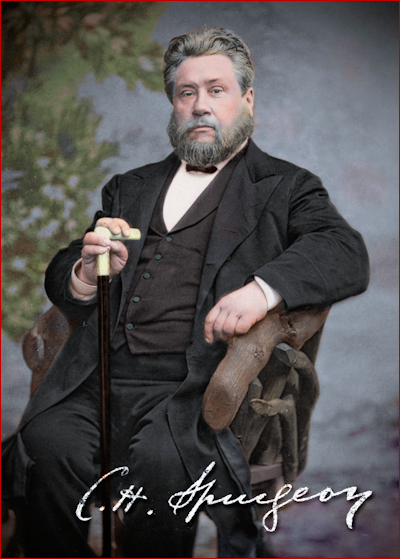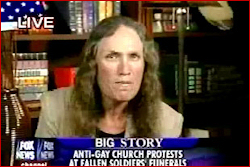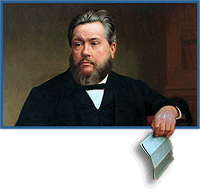"I think ______...."The truth about men. The wisest, smartest, most educated man who ever lived can never honestly go far beyond "I think" — except insofar as he builds on an authority greater than his own.
Imagine the vast, nearly infinite array of facts and information that exist on any subject; then think of the tiny sliver of a portion of a fragment of that which any of us can directly access. Then factor in human fallibility, and any sense of history (e.g. the absolutely certain "scientific" verities that have had to be thrown out and replaced)... and "I think" is about our highest expectation.
The truth about Jesus. Then comes Jesus, to tell us about God — a literally infinite subject which, even if we had access to all the facts, we could never surround. What do we read as coming from His lips? How does He frame his teaching? With "I think"?
Jesus' first recorded preaching in Matthew and Mark certainly cannot be characterized as an invitation for open discussion, debate, or joint exploration. Rather, it is a call for unconditional surrender:
"Repent, for the kingdom of heaven is at hand" (Matthew 4:17)
"The time is fulfilled, and the kingdom of God is at hand; repent and believe in the gospel" (Mark 1:15)Now, as far as it goes, this echoes John's teaching (Matthew 3:2). But John was a prophet, and a great one (Matthew 11:9). He too could speak with certainty, because he spoke God's word (cf. Exodus 4:12; 7:1). Did Jesus do more?
We see "more," when Matthew presents Jesus' laying out of His platform, known popularly as the Sermon on the Mount (Matthew 5-7). Again and again we read His citation of Law or tradition, countered by "But I say to you" (5:22, 28, 32, 34, 39, 44). This takes the prophet's "Thus says Yahweh," and raises it by a vast factor.
So it is unsurprising to read, at the sermon's conclusion, that "when Jesus finished these sayings, the crowds were astonished at his teaching, for he was teaching them as one who had authority, and not as their scribes" (7:28-29). And this is characteristic of the whole. Never does Jesus present His teaching about God as the result of speculative reflection, as His best assembly of the facts, as His best stab at a subject that is beyond Him. Never do we sense the least whiff of tentativeness in His doctrine, of uncertainty.
What we have is either the most massive case of unwarranted hubris, ever, or the words of someone with unmatched authority. Where you stand on that divide defines whether or not you are a Christian.
How could Jesus speak with such authority? Because He did not merely hear and tell God's Word — He was God's Word, incarnate (John 1:1, 14), telling truth He knew directly (as only God can know it) of the Father (John 1:18). He knew God as no mere created being could know Him (John 1:18). So Jesus was simply relaying what He had directly received (John 8:40).
This is why Jesus repeatedly used a phrase found nowhere else: ἀμὴν ἀμὴν, "Amen, amen," "Truly, truly I tell you." (Tobit 8:8 is not a true parallel.) The phrase is found in John's Gospel alone (1:51; 3:3, 4, 11; 5:19, 24-25; 6:26, 32, 47, 53; 8:34, 51, 58; 10:1, 7; 12:24; 13:16, 20-21, 38; 14:12; 16:20, 23; 21:18). It is a very solemn, emphatic insistence that Jesus is telling the absolute, pure, high-grade, industrial strength, unvarnished truth.
How this truth affects us. I see at least three possible effects on two categories of people.
Unbelievers should be awakened and brought to repentance by it. They need to realize that they know nothing whatever with any certainty — except the fact that they can never know anything with any certainty! Their grip on reality is microscopic, evanescent, and baseless. Their greatest teachers are but guessers in a whirlwind; and once they step beyond a small array of facts to claim Certainty, or to expatiate on Meaning, they are 'way out of their depth and self-discredited. They can say nothing authoritative whatever about meaning, value, or significance. Their own premises doom them to walk as blind men in a trackless darkscape.
To them Jesus alone shines as a beacon of light, the Light of the World (John 8:12). His foundation is immovable, His knowledge exhaustive, His authority absolute. He is Lord, and if they are to know anything truly, they must bend the knee and begin knowing on His terms.
Believers should be both emboldened and humbled: emboldened insofar as they echo Jesus' truth, but humbled in the knowledge that their grasp of that truth can only ever be finite.
Christians should never forget that our stance is not and never has been that we are marked off from other men because we are smarter, sharper, wiser, more intelligent. Apart from God's wisdom and grace, we're not an atom better, and may be far worse, than any unbeliever. It is our belief that sheer grace found us dead and blind and obstinate, and sheer grace gave us life and sight and repentance. What we know, we know by divine grant. Our best position is to echo what has been shown us in the Bible, and for that we can take no credit whatever.
And insofar as we are echoing and affirming His word, we should be bold. We aren't standing on our own notions; we're standing on His...if we're doing it right. We aren't preaching ourselves, but Christ Jesus as Lord. It ill-befits heralds to read their King's words bracketed by "I feel" or "for me." Truth would be truth if I'd never been born, and will still be truth if I die. Jesus is the truth, Jesus speaks truth, and if I affirm His teaching, I am also speaking truth. It should be a trumpet-blast, not a kazoo-toot.
At the same time, we must remain humbled, knowing that while we live, we have more to learn, revise, revisit. Our text will never change, but our grasp of it should grow. Virtually every one of us will attest that what we were saved with is not what we were saved to. Many of us were some kinds of Arminians, but were awakened to the Biblical vision of the sovereign Lord. Many of us were some kinds of Charismatics, but had our eyes opened to the sufficiency of the Word. It would be silly to think that, having learned that one lesson, we can close our notebooks and sit still, awaiting our wings and halos.
Above all, when we get into the pulpit to preach (if that is our gift and responsibility), we should be sure that we speak the Word as purely, clearly, and fittingly as God enables us to do. What possible place is there for lengthy guessing and speculation and meandering, when we have barely begun to scratch the surface of revealed truth?
As this post has barely begun to scratch the surface of the significance of the fact that Jesus never prefaced His teaching about God with "I think."






 hat did David have in mind when he spoke of "gaz[ing] upon the beauty of the Lord" in the Lord's Temple? Surely it was not any physical beauty embodied in the Tabernacle itself or its furnishings. Nor is it likely that David saw much loveliness in the Temple liturgy, which featured nonstop animal sacrifices that were anything but beautiful.
hat did David have in mind when he spoke of "gaz[ing] upon the beauty of the Lord" in the Lord's Temple? Surely it was not any physical beauty embodied in the Tabernacle itself or its furnishings. Nor is it likely that David saw much loveliness in the Temple liturgy, which featured nonstop animal sacrifices that were anything but beautiful. And Scripture was always at the heart of corporate worship in Israel. My favorite picture of Old Testament worship is Nehemiah 8, where the people of Jerusalem simply stood for hours as the priests read the Word of God. They weren't singing, swaying to the choir and orchestra, or indulging in any kind of pageantry. They were listening to (and being profoundly moved by) the Word of God as it was read and explained to them.
And Scripture was always at the heart of corporate worship in Israel. My favorite picture of Old Testament worship is Nehemiah 8, where the people of Jerusalem simply stood for hours as the priests read the Word of God. They weren't singing, swaying to the choir and orchestra, or indulging in any kind of pageantry. They were listening to (and being profoundly moved by) the Word of God as it was read and explained to them.

 n the Christian church there is, I am afraid, at this moment too much exaltation of talent and dependence upon education, I mean especially in reference to ministers.
n the Christian church there is, I am afraid, at this moment too much exaltation of talent and dependence upon education, I mean especially in reference to ministers.


 To answer the first question, so to speak, the "propitiation question" is this: in the ESV, for example, the word "propitiation" is used 4 times -- Rom 3, Heb 2, 1 John 2, and 1 John 4; the KJV does not use the word in Heb 2, but that's their loss. It's in place of the Greek word "ἱλαστήριον" (thx, greekbible.com), and also for the word "ἱλασμός" - both of which refer to "a means of appeasing (God)", the former often used to refer to the Mercy Seat of the Ark of the Covenant where the blood of the sacrifice had to be spilled. So the question comes up, "What is the meaning of 'propitiation' in the New Testament as it relates to Christ?"
To answer the first question, so to speak, the "propitiation question" is this: in the ESV, for example, the word "propitiation" is used 4 times -- Rom 3, Heb 2, 1 John 2, and 1 John 4; the KJV does not use the word in Heb 2, but that's their loss. It's in place of the Greek word "ἱλαστήριον" (thx, greekbible.com), and also for the word "ἱλασμός" - both of which refer to "a means of appeasing (God)", the former often used to refer to the Mercy Seat of the Ark of the Covenant where the blood of the sacrifice had to be spilled. So the question comes up, "What is the meaning of 'propitiation' in the New Testament as it relates to Christ?" God is helping somebody -- and it's not angels but people like Abraham. And the kind of help he's giving is not good counsel or even good therapy -- it's the kind of help a priest would offer in the temple of Solomon where what is at stake is sin and what needs to be done has to satisfy God's requirements.
God is helping somebody -- and it's not angels but people like Abraham. And the kind of help he's giving is not good counsel or even good therapy -- it's the kind of help a priest would offer in the temple of Solomon where what is at stake is sin and what needs to be done has to satisfy God's requirements.



 ne of the most effective tactics in the campaign to gain society's silent acquiescence to the homosexual agenda has been the use of the epithet homophobic against anyone who still believes homosexual behavior is immoral or aberrant.
ne of the most effective tactics in the campaign to gain society's silent acquiescence to the homosexual agenda has been the use of the epithet homophobic against anyone who still believes homosexual behavior is immoral or aberrant.


 The
The  think we must look very carefully and very steadfastly to the soundness of that gospel which we proclaim and preach. Soundness, I say—and here possibly I may be touching upon a delicate subject, but what signifieth if that subject be of the utmost and highest importance?
think we must look very carefully and very steadfastly to the soundness of that gospel which we proclaim and preach. Soundness, I say—and here possibly I may be touching upon a delicate subject, but what signifieth if that subject be of the utmost and highest importance?



 AUL was the very model of what a Christian minister should be. He was a watchful shepherd over the flock; he did not simply preach to them, and consider that he had done all his duty when he had delivered his message; but his eyes were always upon the Churches, marking their spiritual welfare, their growth in grace, or their declension in godliness. He was the unsleeping guardian of their spiritual welfare.
AUL was the very model of what a Christian minister should be. He was a watchful shepherd over the flock; he did not simply preach to them, and consider that he had done all his duty when he had delivered his message; but his eyes were always upon the Churches, marking their spiritual welfare, their growth in grace, or their declension in godliness. He was the unsleeping guardian of their spiritual welfare.



 That said, her point in the essay is that us stupid Christians need to stop being bigots and start being, well, something else -- something more "Constitutional" apparently, which is a bizarre demand from a person who is a strong advocate of Obamacare and a strong advocate of a constitutional amendment to ban flag burning. It's as if every matter of human endeavor is or should be governed by human law.
That said, her point in the essay is that us stupid Christians need to stop being bigots and start being, well, something else -- something more "Constitutional" apparently, which is a bizarre demand from a person who is a strong advocate of Obamacare and a strong advocate of a constitutional amendment to ban flag burning. It's as if every matter of human endeavor is or should be governed by human law. Surely: Kirsten Powers does not want that for herself or anyone. She doesn't want to degrade anyone. She wants to be on the side of love and of the pursuit of happiness. But for that to happen, Ms. Powers has to at last admit that everything does not cause love, and everything one might choose does not cause happiness. In that, there's a difference between what she will get for her trouble and what is available in marriage. The Bible calls it the difference between what is right in our own eyes and what God has done, what God has declared.
Surely: Kirsten Powers does not want that for herself or anyone. She doesn't want to degrade anyone. She wants to be on the side of love and of the pursuit of happiness. But for that to happen, Ms. Powers has to at last admit that everything does not cause love, and everything one might choose does not cause happiness. In that, there's a difference between what she will get for her trouble and what is available in marriage. The Bible calls it the difference between what is right in our own eyes and what God has done, what God has declared.












